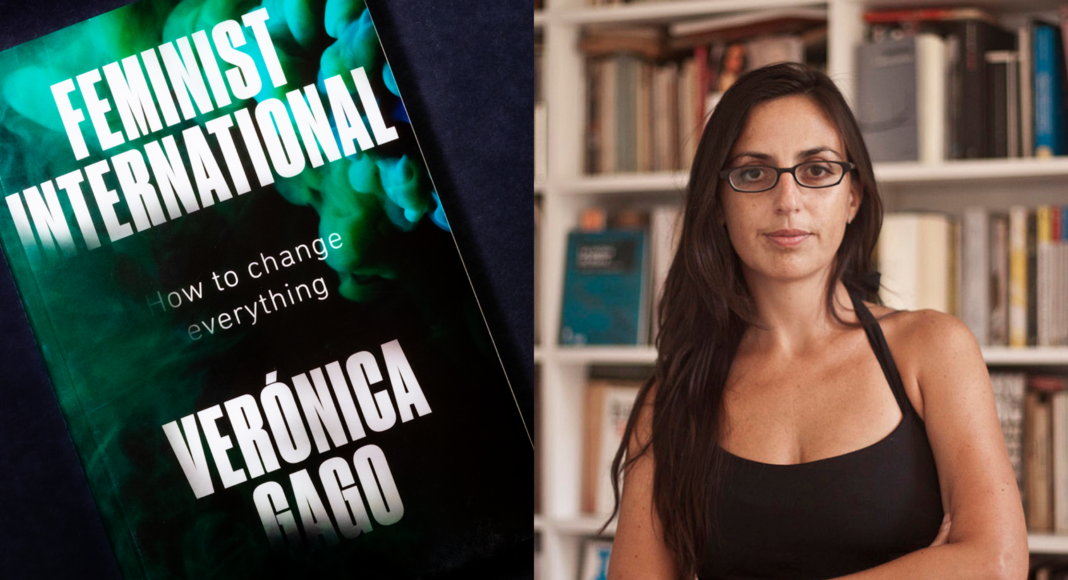In this special ‘WORLD: we got this’ podcast takeover, Professor Jelke Boesten, leader of the Gender Studies Network at King’s College London and a researcher on the Women Resisting Violence project, joins Phoebe Martin, PhD candidate and editor of the Feminist Perspectives blog, and Veronica Gago, leader of Argentina’s #NiUnaMenos movement and the author of ‘Feminist International: How to Change Everything’, to ask: How has the feminist movement been democratised? What differentiates the feminist strike front from the conventual labour strike? And how do we bring feminist activism into the everyday?
In this discussion, the Argentinian feminist activist and scholar Veronica Gago, who follows activists throughout Central and Latin America, observes that there is a pervasive link between struggles over land, the environment, and women’s bodies. The neoliberal heteropatriarchal order is out to dominate all and everything – land and people – for the financial gain of the few. Women’s bodies are often in the middle of struggles over land, literally and figuratively. And women are treated as territory, as property of others, bodies that can be owned and invaded. Gago speaks of the body-territory. This analysis is not only a condemnation of the neoliberal heteropatriarchal order and its conservative cheerleaders, but it has also created a powerful understanding of feminist activism full of social and political potential, or, in Gago’s words, ‘potencia feminista’: feminist power.
During the mass pro-abortion mobilisations between 2018 and 2020 in Argentina, feminist organisations glued together through a democratic practice of the assembly, uniting women from all walks of life in a creative practice of solidarity through the idea of the women’s strike. Removing women’s labour in the workplace, in homes, and in community organisations is an economic strategy that brings home the value of women’s labour beyond the salaried labour market. It also generates a notion of the embodied and territorial experience that is women’s labour, women’s activism, and women’s rights. The strike, based in the idea of economic value, is a protest against the use and abuse of women’s and feminised bodies, a campaign for the right of women and trans people to a life free of violence, and a pro-abortion, equal pay, equal opportunities and pro-welfare campaign.
Gago explains that differences among women were overcome through a practice of listening. For example, through collective debate between different groups of activists, women who worked in community-based foodbanks and soup kitchens indicated they would be unwilling to stop the supply of food during strikes; they did not want to leave the poor without their daily meal. Together they found a compromise: they would coordinate the daily delivery of food, and provide access to the kitchens, but they would not actually prepare the food that day, leaving that task to other community members. As such, the feminist movement in Argentina found a powerful way to mobilise vast numbers of women and their allies, occupy political and actual space (territory), contribute to social change, and provide valuable intellectual ideas.
Gago argues the power of feminist mobilisation is potentially ‘changing everything’.
Main image: LAB/Verso Books




